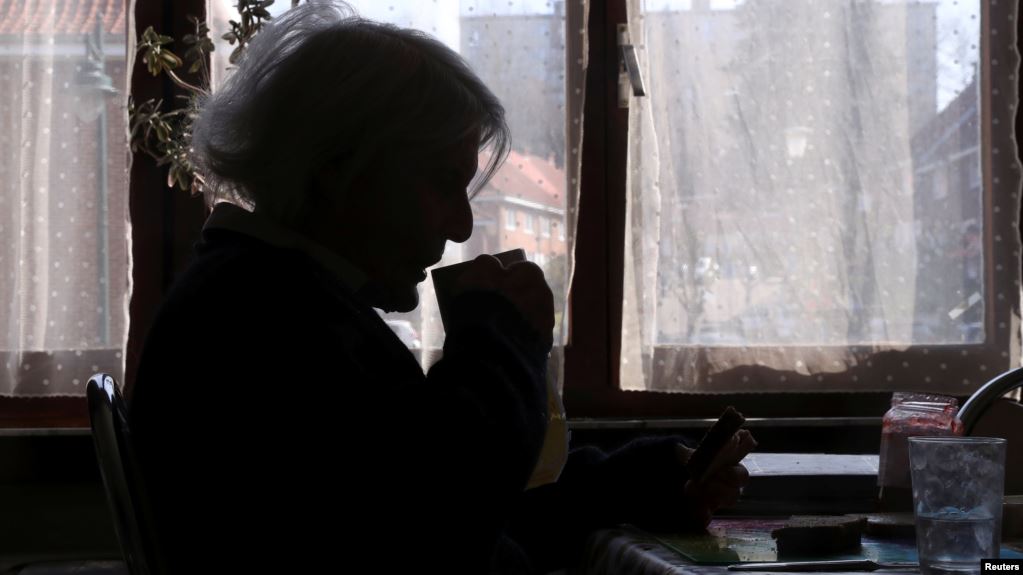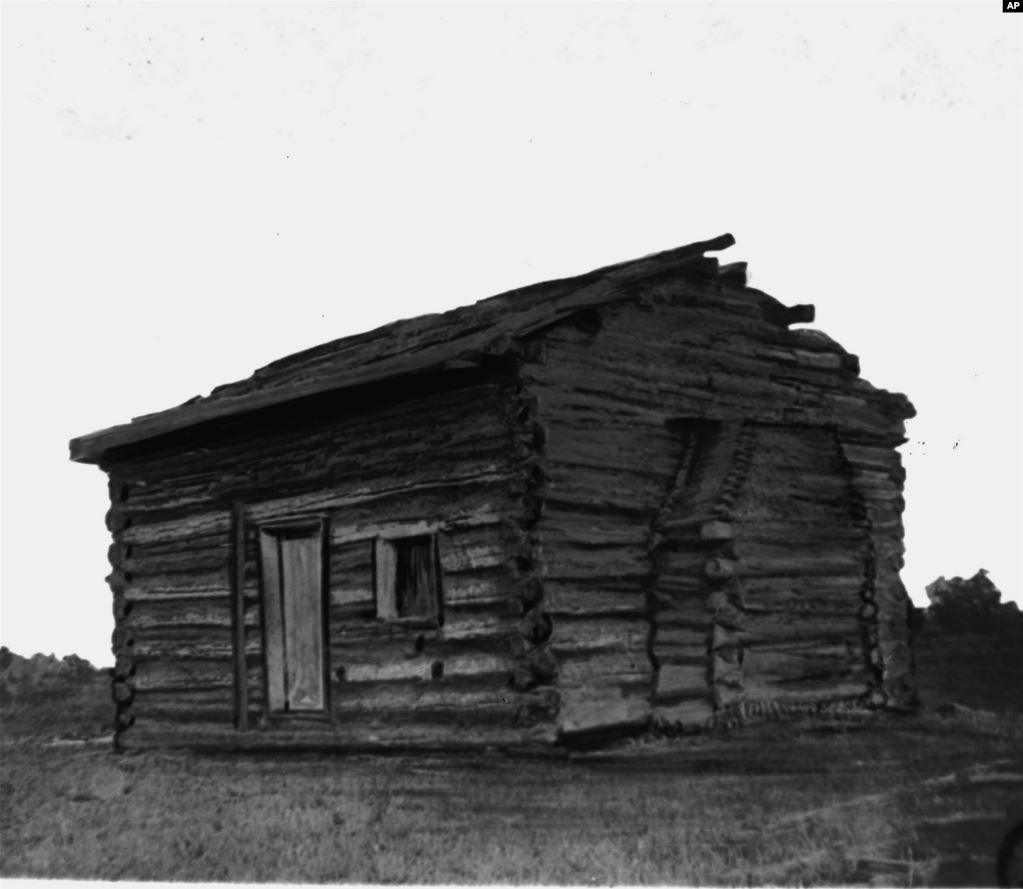پادکست VOA: اصطلاحات انگلیسی – تب کابین!
سلام با بیست و یکمین قسمت از مجموعه “Words and Their Stories” (کلمات و داستان آن ها) از سری پادکستهای VOA در خدمت شما هستیم. این مجموعه پادکست به توضیح اصطلاحات رایج زبان انگلیسی، داستان ایجاد شدنشون و نحوه استفاده از آن ها در مکالمه می پردازه. در این قسمت از پادکست VOA: اصطلاحات انگلیسی – تب کابین! قراره با معنی و کاربرد اصطلاح “cabin fever” (تب کابین) آشنا بشی. در کنارش چندین کلمه ی جالب و کاربردی دیگه هم یاد میگیری که لیست این کلمه ها به همراه معنی اون ها در پایان مطلب قرار گرفته.
اصطلاح “cabin fever” به معنی “تب کابین” وضعیتیه که برای کسی که مدت زمان زیادی در یک فضای بسته بوده و با کسی در ارتباط نبوده پیش میاد. کسی که دچار تب کابین میشه احساس گیر افتادن و محبوس بودن داره و دلش می خواد هرچه سریعتر بیاد بیرون یه هوایی عوض کنه.
VOA – Words and Their Stories – 21: Learn the Cause of Cabin Fever

متن انگلیسی پادکست VOA: اصطلاحات انگلیسی – تب کابین! :
And now, Words and Their Stories, from VOA Learning English.
Today, we are going to talk about being trapped indoors for a long period of time.
Sometimes we are stuck indoors with others and are unable to go out to usual places, such as restaurants, movie theaters and sporting events. Sometimes these restrictions are forced upon us. We have little choice in the matter.
People in this situation may develop “cabin fever.”
Cabin fever is a condition. It happens when someone is stuck inside for a long period of time. If someone is unable to get outside into fresh air or be around other human beings, they may start to feel closed in, stuck, trapped.
When people are forced to stay in a remote or confined place, they may feel unhappy, restlessand bored.
We have many other adjectives to describe cabin fever. Because our patience is tested, we may feel irritable and short-tempered. The smallest thing sets us off or in other words — makes us angry. Every little thing gets on our nerves.
Word historians say “cabin fever” probably came into use in the late 1800s in North America. Early settlers lived in log cabins. They would spend long winters by themselves on the Great Plains. Cold, windy weather and great distances from other people created a truly isolating existence for months at a time.

Documents at the United States Library of Congress (LOC) suggest another origin for the term “cabin fever.”
This one involves the disease typhoid.
Typhoid Mary
In August of 1906, a woman named Mary Mallon began work as a cook in a wealthy home in New York state. By September, several people in that household got the disease typhoid. Health officials traced the cause back to the cook, Mary.
The LOC documents say that on March 19, 1907, she was “forcibly removed from her home by the health department.” “Typhoid Mary,” as she was called in the press, was first sent to the hospital then to an isolated cabin.
Mary Mallon fought for her release. She had private tests done to prove she did not have typhoid. Her story was often reported in many newspapers and she gained sympathy in the press.
On July 10, 1909, The Richmond Planet ran the story, “Typhoid Mary Wants Liberty.” In it Mallon says she was forced to live in a house by herself with only a dog for companionship.
She had been in forced quarantine for about two years. Then in February 1910, Typhoid Mary was released on one condition — that she never work as a cook again. However, she broke that condition, this time under a different name – Mary Brown.
In 1915, typhoid broke out again — this time at a hospital. It turned out that Mary Mallon was again at the center of it. And again, officials took her away.
Typhoid Mary spent the last 23 years of her life in forced isolation. And this time, no one felt bad or sided with her. The press continued to call her “Typhoid Mary,” a name that has stuck.
The case of Typhoid Mary is a serious example of forced isolation. And most likely, she suffered from “cabin fever.”
These days, however, we usually use the term in a more light-hearted way. We might say, “I have a serious case of cabin fever. I need to get out of my house!”
And that’s all the time we have for Words and Their Stories. Join us again next week for another closer look at the English language.
لیست واژگان این پادکست
remote (دورافتاده) – adj. far away from other people, houses, cities, etc.
confined (محصور) – adj. of a space or area : very small
bored (کسل و بی حوصله) – adj. feeling weary and restless through lack of interest
irritable (آزرده) – adj. becoming angry or annoyed easily
short-tempered (آتشی مزاج/ کسی که زود عصبانی میشه) – adj. having a quick temper : quick to anger
to get on someone’s nerves (رو اعصاب کسی راه رفتن) – expression. to irritate someone
isolating (منزوی کننده) – adj. to set apart from others
companionship (همراهی – مصاحبت) – n. the good feeling that comes from being with someone else
امیدوارم از پادکست VOA: اصطلاحات انگلیسی – تب کابین! لذت برده باشید. برای دسترسی به قسمت های دیگر این پادکست می توانید از صفحه ی پادکست VOA – اصطلاحات انگلیسی آکادمی مجازی آموزش زبان ۲۴talk دیدن کنید.
همچنین برای گوش دادن به پادکست های سطح بندی شده British Council می توانید به صفحه ی پادکست British Council آکادمی مجازی آموزش زبان ۲۴talk یا برای گوش دادن به پادکست های BBC به صفحه ی پادکست ۶ دقیقه انگلیسی (BBC) آکادمی مجازی آموزش زبان ۲۴talk مراجعه کنید.
گوش دادن به پادکست روش خوبی برای تقویت مهارت شنیداری و هم چنین یادگرفتن کلمات در بستر یک موضوع خاصه که این به تقویت مهارت مکالمه انگلیسی نیز کمک زیادی می کنه.
اگه دنبال این هستی که مهارت های مکالمه زبان انگلیسیت رو بیشتر از این تقویت کنی بهت پیشنهاد میکنم در دورهی مکالمه زبان انگلیسی آکادمی مجازی آموزش زبان انگلیسی ۲۴talk شرکت کنی که با یه برنامه منسجم و خلاقانه کمک میکنه در زمان کوتاه بتونی به راحتی و روانی انگلیسی صحبت کنی.







